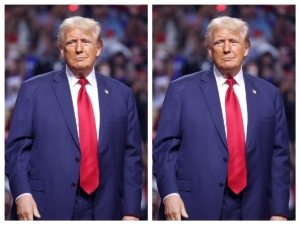Uganda’s long-serving leader, Yoweri Museveni, has officially entered the race for another term, securing his candidacy for the January presidential election. The announcement came Tuesday after electoral officials confirmed his nomination, a move backed by more than 2 million signatures collected by his ruling National Resistance Movement party.
Museveni, now 81, addressed supporters after the declaration, promising continuity. His focus, he said, is “to convince the people of Uganda of what has been achieved in the past and what we are planning to do now.” He highlighted drawing more foreign investment as a key goal for the years ahead.
The confirmation event, according to AP’s report, drew crowds outside Kampala, with celebrations planned at ceremonial grounds later in the day.
READ ALSO: ICC opens historic war crimes case against fugitive Ugandan warlord Joseph Kony
Museveni has ruled Uganda since seizing power in 1986. Though unelected for his first decade in charge, he later transitioned to multiparty elections. Critics argue that polls since 2001 have been heavily skewed in his favor, with allegations of vote-rigging, intimidation, and military interference. In 2017, parliament—dominated by his party, scrapped the presidential age limit, clearing the way for him to extend his rule indefinitely.
His main challenger is once again Bobi Wine, the musician-turned-politician whose real name is Kyagulanyi Ssentamu. Wine is expected to be nominated later this week, setting up a rematch of the tense 2021 contest in which he officially secured 35% of the vote against Museveni’s 58%. Wine disputed those results, claiming his victory was stolen through ballot stuffing and other irregularities, charges that electoral authorities dismissed.
Museveni has painted Wine as a proxy for foreign powers and questioned his loyalty to Uganda. Yet Wine remains a powerful figure, especially among young urban voters disillusioned by poverty, unemployment, and decades of single-party dominance. His party holds the largest opposition presence in parliament.
The coming campaign is expected to focus heavily on Kampala and other urban centers, where Museveni has stepped up appearances in an effort to erode Wine’s base. With more than three-quarters of Uganda’s citizens under 35, according to the U.N. children’s agency, the country’s youthful population is seen as a decisive force in shaping the outcome.
READ ALSO: Uganda to take U.S. deportees, but only those without criminal backgrounds
Uganda is also one of four African nations that have signed agreements to accept migrants deported from the United States, a policy Museveni has defended amid criticism at home.










